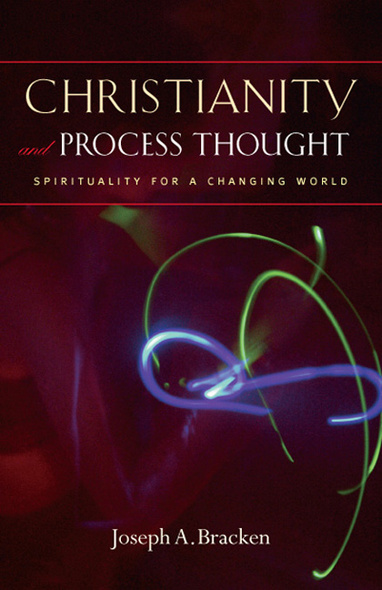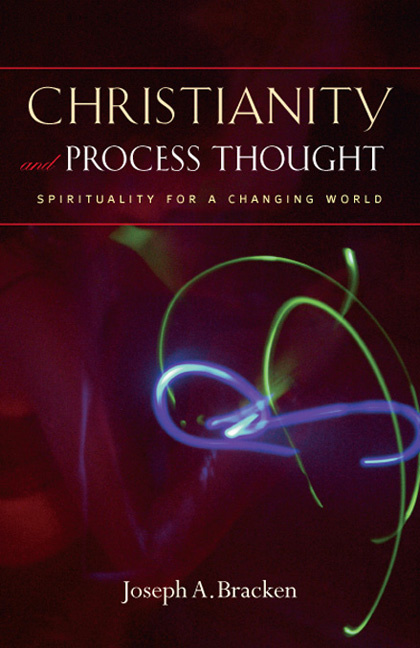Christianity and Process Thought
Spirituality for a Changing World
“If someone were to ask, ‘Where is God?’ how would you respond?”
Joseph A. Bracken, SJ, uses this question as a springboard to introduce the process-relational metaphysics of Alfred North Whitehead and other process theologians as he tries to reconcile the sometimes-conflicting views of traditional Christian doctrines and the modern scientific world. To present this material in an accessible manner to a broader audience, Bracken reworks Whitehead’s “model” of the God-world relationship, showing that God is involved in an ongoing, ever-changing relationship with all creatures. He also discusses the work of other contemporary theologians to help Christians come to terms with their role in our multi-dimensional pluralistic society.
Bracken examines divine and human creativity, the collective power of good and evil, divine providence and human freedom, prayer, altruism, and the fundamental question, “What is truth?” He shows how Whitehead’s process thought approach to these issues could “harmonize” traditional Christian beliefs and contemporary culture, benefiting faith and reason.
Understanding the God-world relationship subtly influences our attitude toward ourselves, toward other human beings, and indeed toward all of God’s creatures, says Bracken. His revision of Whitehead’s metaphysical vision in terms of a cosmic community shows how modern views of the world and God can be accepted and kept in balance with the traditional biblical views found in the Christian faith and how this balance can help Christians make better choices in a world shaped both by contemporary natural science and by traditional Christian spirituality.
“If we truly believe that in God, we live and move and have our being and that, as a result, we share with the divine persons in a deeply communitarian way of life together with all of God’s creatures, we may be more readily inclined to make the periodic sacrifice of personal self-interest to pursue the higher good of sustained life in the community. In the end, it is simply a matter of seeing the ‘bigger picture,’ realizing what life is ultimately all about.”
Foreword by John F. Haught / ix
Acknowledgments / xiii
Introduction / xv
Chapter 1: “In Whom We Live and Move and Have Our Being” (Acts 17:28) / 3
Chapter 2: Divine and Human Creativity / 14
Chapter 3: The Shape of Things to Come / 28
Chapter 4: The Collective Power of Good and Evil / 41
Chapter 5: The Church and the Kingdom of God / 53
Chapter 6: “What is Truth?” (John 18:38) / 65
Chapter 7: Divine Providence and Human Freedom / 77
Chapter 8: Prayer and the Collective Power of Good / 89
Chapter 9: Alpha and Omega: The Beginning and the End / 103
Chapter 10: Science, Faith, and Altruism / 116
Chapter 11: Learning to Trust / 127
Notes / 141
Index / 151





